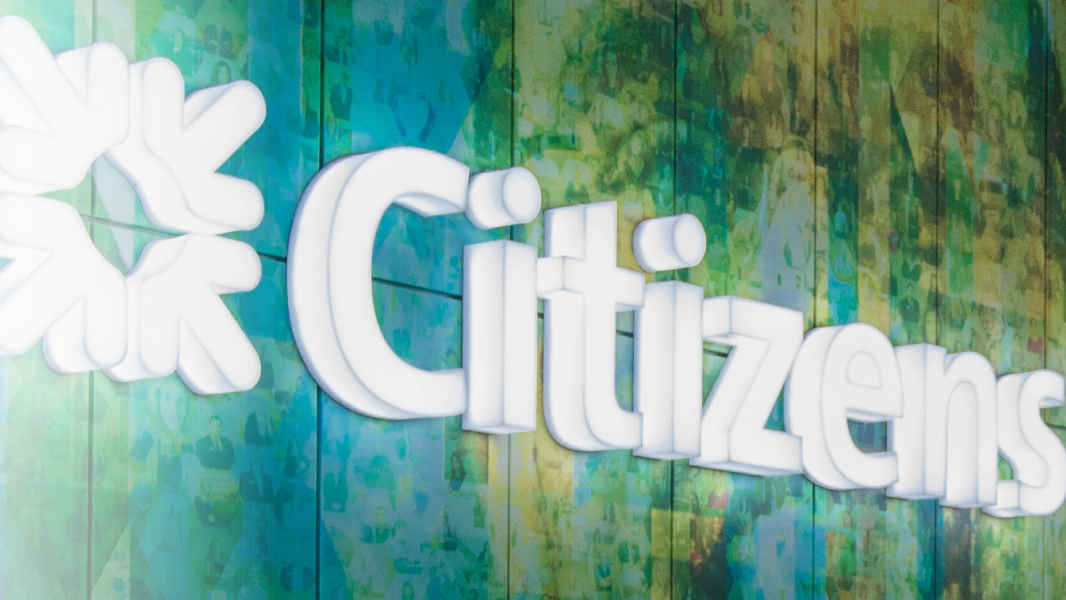Ecosystem, talent and access: Future-proofing Boston's innovation economy

Key takeaways
- With its strong foundation in core industries like biotech, fintech, AI and enterprise tech, Massachusetts is a thriving innovation hub with even more potential to unlock.
- Massachusetts continues to house some of the world's greatest brain-talent, but too often they leave with their ideas and early-stage companies due to rising real estate costs and limited access to start-up networks.
- Public-private partnerships that increase access to office space, networking connections and funding can help bridge gaps in the Massachusetts innovation economy and foster a thriving ecosystem.
Some of the world's most groundbreaking companies were founded in Massachusetts. The region has attracted established businesses, invested resources into building a vibrant startup community and currently ranks fourth in the country for venture capital (VC) funding.
As the region continues to develop a strong business ecosystem anchored around enterprise tech and biotech, recent research from Citizens identified several areas of opportunity for growth.
To further examine how to continue to advance this innovation economy, local leaders gathered for a roundtable discussion about the state's business environment and how Massachusetts has yet to unlock its full potential.
On April 2, 2025, Citizens convened "Future-Proofing Massachusetts: Building a Resilient Innovation Economy" at MassChallenge headquarters. Experts from across the business community explored how institutions can collaborate to drive economic impact and keep local talent to propel Massachusetts, its businesses and people for long-term success.
The roundtable, hosted by Bruce Van Saun, Chairman and CEO of Citizens, included panelists:
- J.D. Chesloff, president and CEO of Massachusetts Business Roundtable
- Cait Brumme, CEO of MassChallenge
- Mark Casady, Co-founder of Vestigo Ventures
- Artem Lukoianov, Co-founder of Sundai Club
Based on the insights the panelists shared, there was one overriding consensus: If Massachusetts wants to remain an economic and innovation leader, it will need to significantly invest in the infrastructure, talent, programs and partnerships that nurture an environment where new ideas and companies can thrive.
Closing ecosystem gaps
Leading academic and research institutions, civic infrastructure and government support are core components of the state's innovation ecosystem, but several forces have reshaped the local business environment in recent years.
Five years ago, the Boston area experienced a biotech boom. But a bust cycle immediately followed, with a slowdown in the creation of new businesses locally amid ongoing economic uncertainty nationally. Now, a coming AI boom may again lead to a rise in business funding, said Mark Casady, Co-founder of Vestigo Ventures.
"We have moved a significant amount of startup activity around fintech [financial technology] here. Biotech already was here, and now AI is the next big wave. I think it's been a tough five years in some respects, and yet a wonderful one when we think about the achievements that venture helped facilitate for entrepreneurs through capital," Casady said, whose firm invests in seed stage fintech companies.
Even with these fluctuations, Massachusetts has continued to grow as an innovation hub as other industries develop alongside tech.
"We've been taking sectors that are outside biotech and really going after them - digital health, fintech, AI, robotics," said Cait Brumme, CEO of MassChallenge, a startup accelerator. "The net result is that we have an awesomely diversified innovation sector."
A Citizens survey - conducted among 500 Boston residents in March 2025 to assess what the region needs to accelerate innovation, future-proof its economy and become an even more attractive place to live and work - indicates the business ecosystem in Massachusetts has several strengths. The survey revealed Boston residents see several growth sectors for innovation in the region, including public transportation (54%), health care and biotechnology (48%), renewable energy and sustainability (46%) and STEM education and workforce development (44%).

Massachusetts' talent advantage — and challenge
Massachusetts is home to some of the most storied business and academic institutions.
According to the Stanford Venture Capital Initiative, MIT and Harvard rank number two and three, respectively, behind Stanford for the universities with the most unicorn founders, or those who have created $1 billion companies.
Artem Lukoianov, a Ph.D. researcher at MIT Computer Science & Artificial Intelligence Laboratory (CSAIL) and Co-founder of Sundai Club, a Boston-based hacker community focused on developing AI applications, said the Boston area offers "good soil" to build community and connection.
"It's all about the community and the access to people around you. Number one, always, to me, is just who you are surrounded with, who inspires you and who drives you," Lukoainov said. "I quite often bring up this example that it's probably the only place I've been to where you go to a random bar and people don't talk about football. They talk about AI. They talk about DNA sequencing research."
Massachusetts has a unique talent advantage. An audience pulse survey taken during the roundtable discussion indicated locals are well-aware of it: 72% of attendees said they think the area already has the talent it needs to boost innovation.
While the region's universities are "just extraordinary powerhouses, pipelines that develop innovation and talent," according to Brumme, she also admitted the area is losing talent. Many founders start their companies here but grow them elsewhere.
Developing and retaining talent is crucial to create a more resilient innovation ecosystem, and it's incumbent upon public and private institutions to work together to keep local talent in the state.
Citizens has taken significant action in this area, committing $10 million to workforce development over the next two years, with $1.75 million specifically allocated to Massachusetts.
The company also collaborates with partners like Education Design Labs to provide upskilling opportunities. In April 2025, it announced a collaboration with MIT Solve, the university's social impact and innovation initiative, to award a $100,000 innovation prize to groundbreaking solutions that shape the future of work.
Forging these types of partnerships is critical, as survey respondents highlighted science, technology, engineering and math (STEM) education and workforce development (44%) as areas in which they would like to see the region invest in innovative solutions. By funding and partnering in these two areas, Citizens showcases one model for how public-private partnerships can accelerate innovation and growth.
Citizens also has invested in affordable housing projects and building digital infrastructure locally.
"It's taking a broad view of talent and upskilling, then [considering] all the things that the talent needs to have a good life here and be able to thrive," according to Bruce Van Saun, Chairman and CEO of Citizens.
Unlocking access to fuel future innovation
Giving founders access to transform their big idea into a viable business is one of the most effective ways to build a resilient innovation economy. That can mean access to networking and relationships, as well as access to physical space and resources.
MassChallenge, a public-private partnership founded in 2009 and supported by Citizens, has long provided space, resources and connections for early-stage founders, serving over 3,000 startups since its inception.
However, warm introductions, rather than cold outreach, still drive deals in Massachusetts. Experts say more is needed to remove barriers, facilitate network growth and accelerate funding connections.
"You have to be introduced to VCs," Lukoianov said. "It's very hard to raise money where in other places like New York, [based on] the experience of our [Sundai Club] members, even cold outreach works with no traction."
This means social capital can be just as important as financial capital, despite the latter receiving headlines and attention, Brumme and Casady said.
"We think there is disproportionate time and focus often given to financial capital versus social capital," Brumme said, adding that MassChallenge has intentionally sought "to create radical access to knowledge networks, customers and people that help entrepreneurs understand their market."
Casady added that the Boston area needs to create more opportunities for "collisions," or social interactions, between investors, founders and mentors.
"The more we can create places that go across industries, across disciplines, from the universities or across businesses, banks, industrials and others, the more vibrancy you're going to create around innovation," Casady said.
Citizens is already playing a role not just as a funder, but as a connector and active ecosystem builder, providing referrals, sharing market intelligence and making valuable connections. It also has invested in Casady's fund to support early stage fintechs.
"Citizens [Private Bank] offers turnkey solutions as to how to get in business and set up your company. We have referrals to lawyers and VC, we give good advice, and we share information about what we're seeing with other companies. We're acting as that trusted advisor that makes it easy for entrepreneurs to get into business - then they can focus on driving their vision of what they're trying to accomplish," Van Saun explained.
However, the innovation ecosystem needs more than just talent and introductions. Rising housing costs get headlines, but commercial real estate remains a large expense for companies, especially early-stage start-ups who are looking for space to collaborate and move ideas forward.
Lukoianov noted that Kendall Square in Cambridge consistently ranks as one of the most expensive submarkets for office space, and Boston remains a top 5 most expensive city for office space.
The good news is there is plenty of opportunity: According to Commercial Edge's December 2024 report, Boston is the top market for office development, with 9.2 million square feet underway - more than double San Francisco's pipeline.
Continued public and private partnerships can help reduce this barrier to access and keep local founders in Massachusetts.

Lisa Murray, President, Citizens Massachusetts, speaks ahead of the roundtable discussion during "Future-Proofing Massachusetts: Building a Resilient Innovation Economy" at MassChallenge headquarters on April 2, 2025.
Building a foundation for the next wave of innovation
Massachusetts has several pathways for growth to remain one of the world's top innovation hubs.
With world-changing brain power already in the state, the opportunity to usher in the next generation of innovation and startups is right here at home. Businesses, funders, academia and government leaders must continue to work together to keep founders in the place where their idea was born.
That means breaking down silos, encouraging more collaboration and networking as well as finding creative solutions to complex problems like access to office space and capital.
By investing in the ecosystem, talent and access needed to fuel the innovation economy, Massachusetts will remain an important global player in a diverse cross-section of industries, while keeping the state competitive for workers at every level.
J.D. Chesloff, president and CEO of Massachusetts Business Roundtable, said he's optimistic about the path forward.
"We have a lot to build on here. We have a lot going for us, and we need to be intentional about keeping that going.
Related topics

Fostering strong communities
We work to strengthen the communities where we live and work.

Creating a culture of inclusion
Learn about our commitment to inclusion for our colleagues, customers and communities.

Promoting sustainability & impact
Our commitment to continual progress is woven into the fabric of our business, as we work to create a thriving, sustainable, inclusive future for all.
© Citizens Financial Group, Inc. All rights reserved. Citizens Bank, N.A. Member FDIC
Disclaimer: The information contained herein is for informational purposes only as a service to the public and is not legal advice or a substitute for legal counsel. You should do your own research and/or contact your own legal or tax advisor for assistance with questions you may have on the information contained herein.
